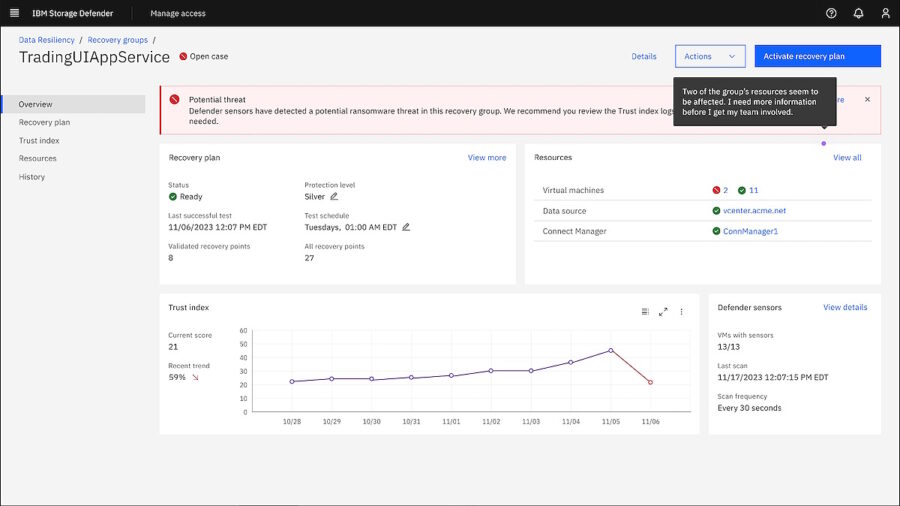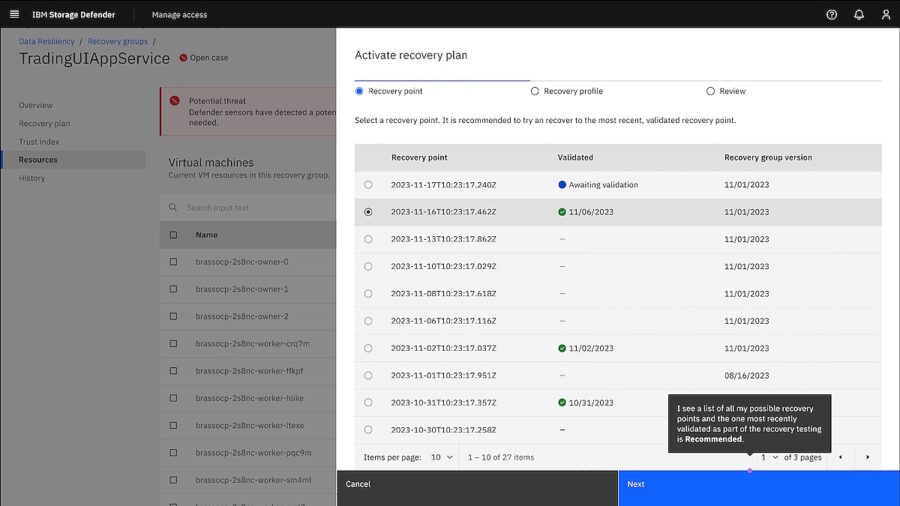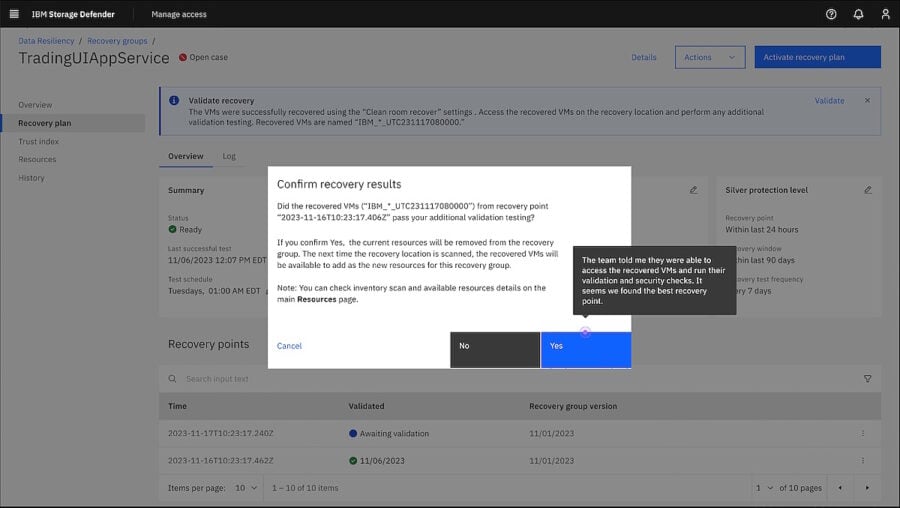Recently, IBM published a blog post detailing its FlashCore Module (FCM) technology to protect against malware, including ransomware, on its SSDs. As they detailed, the latest version of FCM (FCM4) now supports artificial intelligence, which is used to detect and respond to cybersecurity threats as they occur.
Previous generations of FCMs were able to scan all incoming data without impacting performance, but lacked advanced AI data analysis features. FCM4 tracks statistics for every single I/O operation and uses machine learning to detect threats, such as ransomware, in less than a minute.
This is how the incident response looks like in the admin panel:
This approach from IBM combines with other productive security methods and with self-protecting SSDs such asCigent та Phison.
Virus activity detection is only part of the IBM solution; IBM Storage Insights software can alert users to anomalies. FCM4 technology collects real-time I/O data that machine learning models use to identify threats. By integrating FCM with Storage Defender software, IBM can leverage AI-driven data detection and recovery operations on both the software and hardware sides.
Of course, the use of these technologies and their various backup, recovery, and protection functions is currently only available to corporations with large amounts of data. While everyday drives may one day also receive such protection, IBM’s FCM technology and related software are aimed squarely at enterprise and professional users, especially those who need to deal with highly sensitive or confidential information.
IBM has shown that machine learning AI can increase the speed of ransomware detection, other malicious activity removal, and data recovery from storage. It would be difficult for even the most experienced IT security professionals to detect and begin to eliminate a ransomware attack within one minute, but this work could be ideal for these ever-evolving machine learning models.






Loading comments …